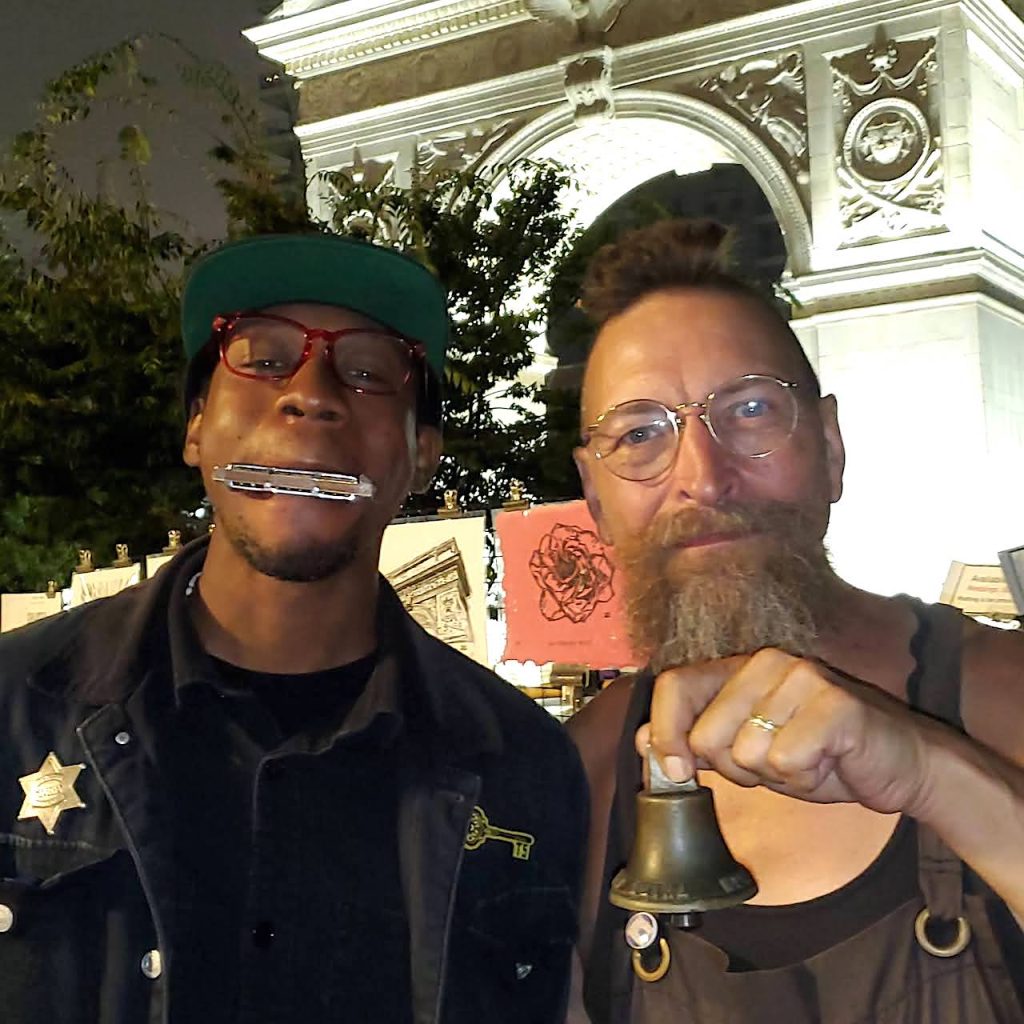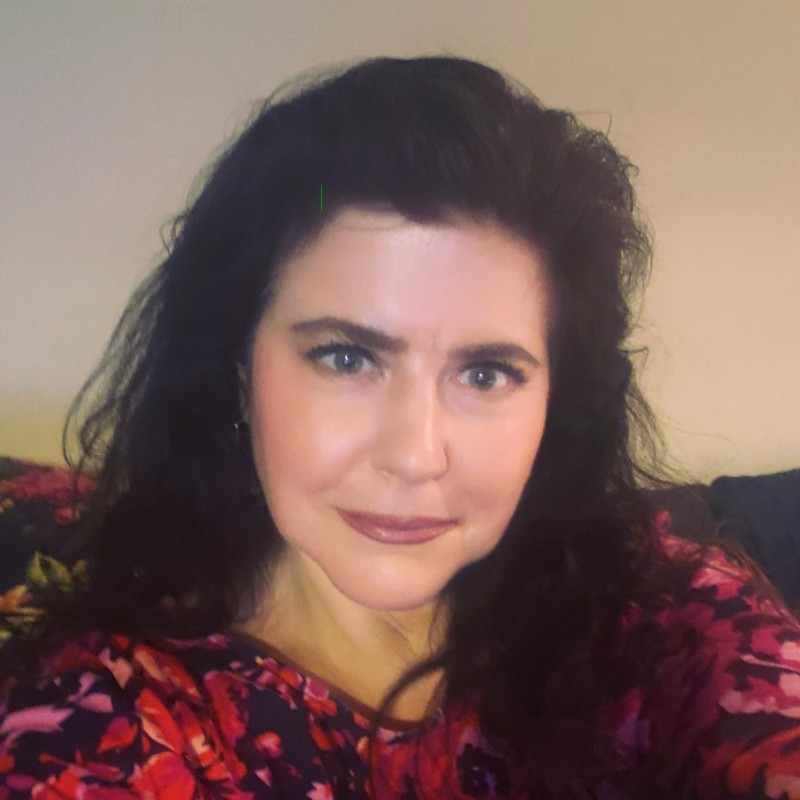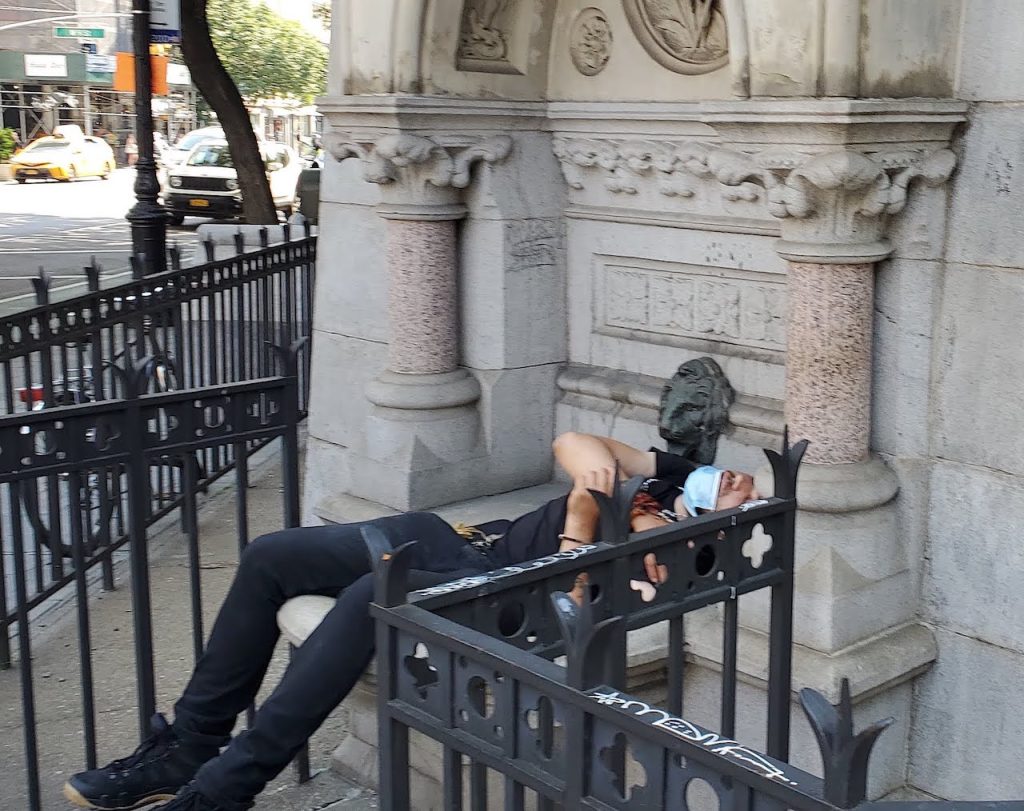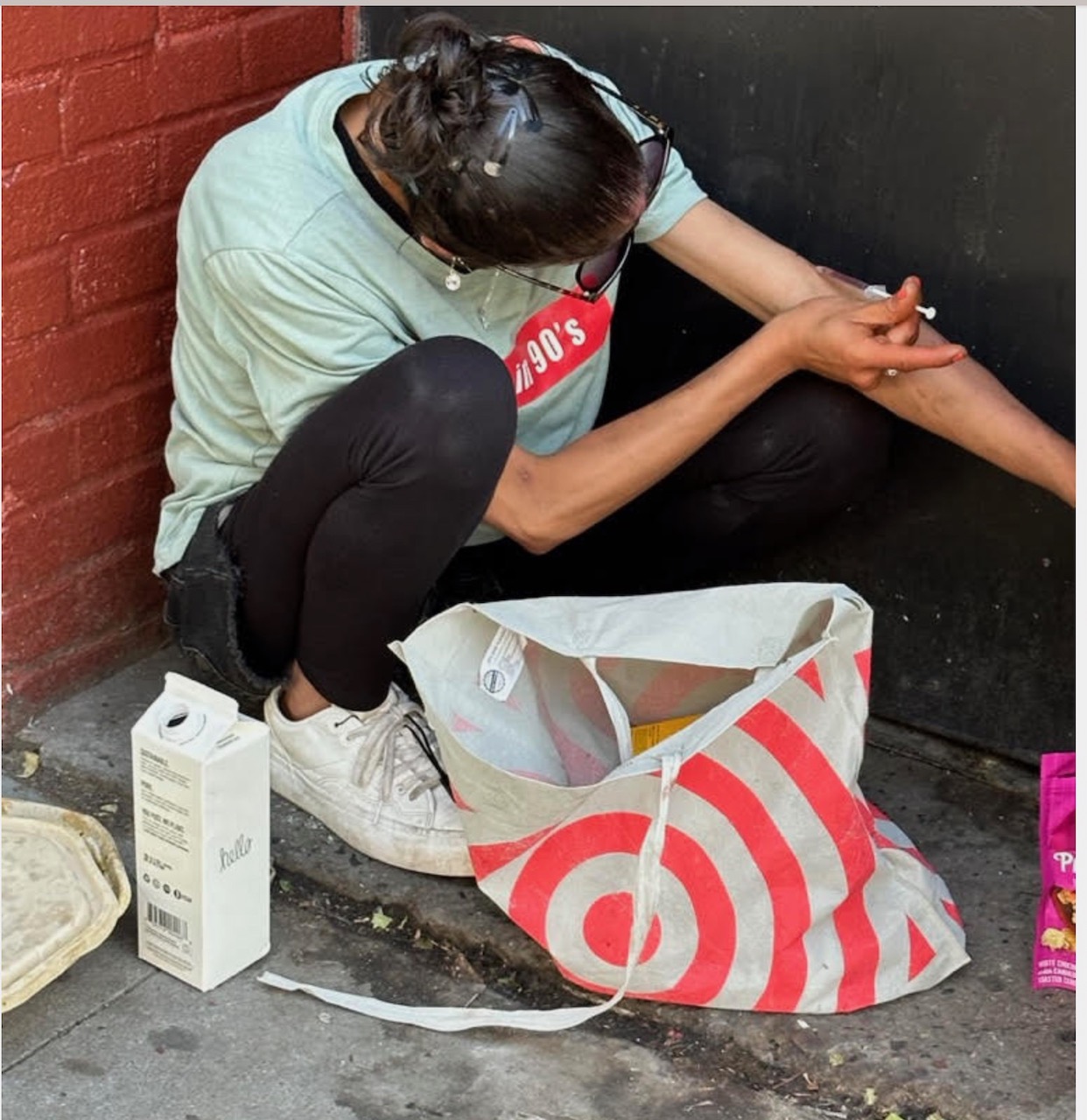BY LINCOLN ANDERSON Two summers ago, M-80s would sometimes rip through the night sky above Washington Square Park and Roman candles often streaked colorfully overhead. On the ground below, amped-up party speakers blared tunes until all hours as crowds of young revelers — blowing off steam from being cooped up during the pandemic — joyously grooved at open-air raves. Guys on growling gas-powered scooters popped wheelies. Alcoholic “nutcrackers” were for sale. The park’s curfew often was not enforced — said to be a minute-to-minute call each evening by then-Mayor Bill de Blasio. Though the park was jam-packed, especially at night, it was mostly peaceful — and it was fun, at least for the partiers, that is.
Yet, come morning, the famed Greenwich Village greensward was usually left trashed with bottles and paper pizza plates and boxes. One night, a woman was trampled and her head bloodied when a man waving a large knife and a taser sparked a stampede. There were a few stabbings. Some pot vendors were robbed at gunpoint. As for many neighbors, they were understandably driven to distraction by the late-night noise.
Then, a few months after the virus’s start, with George Floyd’s death in Minneapolis, the iconic space also became a gathering spot for Black Lives Matter protests. Anti-cop activists clashed with officers trying to close the park for its nightly curfew.
But after Gay Pride that June, police began enforcing the curfew once again.
Fast-forward two years and the historic park — and surrounding neighborhood — remains a very different place today than before the pandemic.
Washington Square Park continues to be more heavily used than pre-pandemic. Entrenched issues that plagued it during COVID and even going back further — such as, notably, hard drug use in the park’s northwest corner — persist. Some angrily cast blame on Albany’s criminal-justice reforms, the Manhattan district attorney, judges, local politicians, the mayor, the police, the Parks Department and the local community board for the scourge of hard drugs that currently grips the area.
However, vending, for one, which mushroomed in the square during COVID, has recently been facing pushback from Parks Enforcement Patrol officers and police: Artist vendors are now being told, per regulations, that they can’t set up their tables within 50 feet of the fountain and can’t use large beach umbrellas for shade. The artists — who don’t need a permit to vend since their work is protected as expressive matter under the First Amendment — have been holding weekly protests. Eric Cook, their leader, rings a vintage train conductor’s bell from the Third Avenue El every time a PEP officer enters the fountain plaza — so that, he says, the park officers know they are being watched.
Meanwhile, the 6th Precinct is cracking down in earnest on marijuana vending in the square, which first took root in fall 2021, around six months after the state legalized recreational weed sales — though only by licensed dispensaries.

Hard drug sales and use continues to spill back and forth from the park to the surrounding streets to the W. Fourth Street subway station at Waverly Place. Last summer, W. Fourth Street was inundated by drug dealers and strung-out addicts, who also often suffer from untreated mental illness. As first reported by The Village Sun, the block association, feeling they were not getting enough help from police, actually hired armed security guards. This spring and summer, Eighth Street, for one, has been seeing more open drug use and homeless encampments.
On any given day, strung-out crack addicts seen one moment scrounging for money in the park can later be seen doing the same along W. Fourth Street or while taking a spin through Ben’s Pizzeria a block south.
In fact, as for the park, some would say it hit a new low this summer. In June one homeless man fatally stabbed another in the park’s northwest corner. The next month, as first reported by thevillagesun.com, Will Morrison, the park’s administrator, was attacked and had his elbow fractured while Morrison was videoing “illegal activity” in the park. Also first reported on this newspaper’s online site, in August, a man was found dead early one morning in the chess tables area, slumped over on a seat; police say they are investigating it as a “possible drug overdose.” Drug dealers — according to a park source, there are at least seven of them — openly ply their trade in the park every day before 8 a.m. Some addicts trade sex for drugs.
Many in the surrounding community are beyond fed up and are demanding change. They are outraged that nearly one-quarter or more of Washington Square Park is now basically a hard-drug zone for crack and heroin.
Community Board 2 and the Washington Square Association are among those who are now saying it’s time for a change. In June both went on record calling for all the park’s rules to be “consistently enforced” — on everything from vending, including pot vending, to skateboarding, which is not allowed in the park and which makes many seniors afraid of using the park. Hard drug use in the park must be policed, they demanded.

Susan Kent, the new chairperson of C.B. 2, said she wants to bring everyone to the table to have conversations on issues like vending in the park and hard drugs and safety, so that the board can make recommendations and help spur action. An attorney, Kent has a levelheaded perspective and, it seems, a good grasp of what the issues are — and, to her credit, wants to hear from as many involved parties as possible to get an even-broader understanding.
“This is not going to be a one-off,” she said of the meetings she is planning. “I think it’s important to have everybody at the table, looking at each other face to face. I don’t want to prejudge.
“There are regulations,” she said, though at the same time adding, “There are citywide rules that, when you get to us [in Greenwich Village and Washington Square Park], have a whole different impact — like the dining sheds.
“People have a right to express themselves in a constructive manner,” she noted, though adding, “We are dealing with competing interests in a limited space.”
The park has simply become extremely heavily used and crowded, which is one of the main reasons why C.B. 2 recently went on record calling for the park’s rules to be enforced, she said.
Other meetings could focus on hard drugs in the park and the surrounding area.
“We’ll also be discussing drug use,” she said. “There’s been a lot of frustration expressed by the residents. There’s been criminal activity in front of people’s houses. People are scared.”
As for whether drug activity flows back and forth from the park to the neighborhood, she said, “It certainly does.”
The current and immediate past commanding officers of the 6th Precinct have both said that narcotics in and around the park has led to an increase in commercial and residential burglaries, for one, since addicts need money to feed their drug habits.
Kent noted that just recently she was walking home from the C.B. 2 office and heading through Washington Square Park when she saw a guy passed out on the ground by the fountain. E.M.T.’s and police were aiding him.
“I was astounded,” she said. “Did he buy drugs in the park or outside of the park? It’s one large [drug] zone and there is overlap.”
Meanwhile, she was dismayed that nobody in the park even was paying any attention to the unconscious man.
“One thing I’ve been told is that the park and the vicinity are a destination for [drug] buyers,” she said. “And there’s good mass transit to get here. So it becomes a focal point for people to get here who need their fix.”
The drug use in the park is brazen, Kent — like everyone else — has observed.
“As long as you don’t look like a cop, they don’t care if they’re doing it in front of you,” she noted.
She said she has also been told that the park and surrounding area attract “low-level dealers” who both sell and use drugs themselves.
However, many police say that, in the current climate, when they make arrests for hard drugs, the dealers are back out on the streets very quickly.
“Or if they’re locked up, someone is there to take their place,” Kent said.

Even so, Captain Jason Zeikel, the precinct’s current C.O., says that if he sees open drug use, he’ll be making an arrest.
While many of the addicts in the park and the nearby streets just want to get high and not bother anyone — and just zone out in the park’s northwest corner, for example — Kent said you never know what people will do.
“You always have to be on guard because you never know who’s going to act out,” she said. “The fact is a lot of people on the street have mental health issues.”
As for marijuana vending in the park, Kent said, “There’s been a lot of advocacy for [pot] legalization. Now this illegal activity is compromising them. There’s no justification for selling drugs illegally. Period.”
Furthermore, smoking pot isn’t allowed in parks, she stressed.
“Look, smoking in a public park is illegal,” she said. “It doesn’t matter what you’re smoking. It hasn’t been legal for decades. You’re forcing other people who want to sit there and just enjoy the park to breathe your smoke.”
The board chairperson admitted, though, it’s not clear if PEP officers are actually telling tokers in the park to snuff out their pre-rolled joints.
In short, Kent said, the community board has no power to make laws or enforce them, but instead can act as “a facilitator” to help address situations and find solutions.
Again, one thing that’s clear is that the park has become more of a destination than ever.
“The pandemic definitely changed things,” she said. “I think there’s a greater appreciation of open space — and the park itself became more on people’s radar. It’s become a more high-profile public space.”
Partly spurring the park’s transformation was, no doubt, its renovation in the mid-2000s, which leveled and smoothed out the fountain plaza, which was previously a sunken bowl with sloping sides and a craggy asphalt surface. Skateboarders, for one, love zipping around on the plaza’s new smooth, flat surface and “grinding” their boards’ metal axles on the plaza’s fancy black granite benches. And the place’s leveled surface is great for setting up vending tables, too.
“That’s true,” Kent said. “That probably was an unintended consequence. It’s a more inviting and flexible space. That’s why you’re seeing people doing different things all in that small space — because it has that flexibility.”
Speaking of uses, Kent noted the park was formerly a potter’s field.
“We know there are bodies there,” she said, “if you want to go back far enough.”
As for why the Central Village area and the park has become gripped by an entrenched hard-drugs scene in recent years, Kent said it’s partly due to the community’s accepting nature.
“I think the fact that we are a more open, progressive community… . We want people to have freedom,” she said. “We don’t want to tell them how to live their lives — but we have to coexist. It’s hard for people who see themselves as progressive to say, ‘I’m afraid. There are limits.’ I think a lot of people are confused: ‘How did we get to this situation?’”
Although the Village developed a reputation as bohemia, attracting creative types due to its cheap rent, for the most part, it’s not an affordable neighborhood anymore, she noted. Similarly, Manhattan used to have a lot of affordable S.R.O.’s (single-room-occupancy units with shared bathrooms in the hallways) but no more, Kent added.
“You’ve got a lot of people in this city living on the margins who can’t afford a home,” she said.
No dates have been set for the meetings yet, but Kent is looking forward to them.
“I’m cautiously optimistic,” she said. “You gotta do the work.”
Check thevillagesun.com for ongoing coverage of issues concerning Washington Square Park and the neighborhood, which will include more voices.


Vending of any kind is ILLEGAL in WSP. There must be enforcement of these rule. The inconsistency of enforcement is allowing variations of crimes to flourish. Parks Dept is clearly not equipped to handle this. The excuses need to stop. Politicians should be mandated to spend at least one full day/night in the park.
According to my understanding, certain types of vending, as artistic expression, are allowed, but not within 50 feet of the fountain. Since that distance is impractical, the guidelines need to be fixed. Large umbrellas should be allowed for sun protection. No drug dealing should be allowed at any time. Can’t drug dealers be arrested? Amplification of sound should be prohibited, but acoustic guitars, unamplified singing, that type of thing, should be allowed; the park is famous for that. David Bowie used to hang out there. Also, people should be allowed to hold protest vigils there.
Another reason why people who can afford to are leaving NYC. I played in WSP as a youngster. Today I avoid it.
Kent’s comments are sensible, so we’ll wait to see how the many disparate groups that need to come together do in fact organize and make this happen.
Such groups include the Parks Dept., primarily responsible for the Park but always on the defensive for its own management issues; the 6th Precinct, caught short of funds and any clear direction or authority regarding Park patrol; the Conservancy, well intentioned but notoriously lax in providing any real leadership; the neighbors, of which I am one (whose kids played in the playgrounds and the ‘grassy knoll’ mounds growing up); the local Block Associations (ours on 9th functioning well and with privately paid security, the folks on nearby Washington St. paying even more but struggling with the addicts); and always, the politicians, pledging to improve things we can only hope they actually might begin to deliver.
I’ll attend those meetings, if only to see if problems like this can be solved anymore in our time.
Good article. The addicts need to be taken to mental health facilities and basically be removed from society until they can better exist in society. Anyone with personal experience with opiate addicts knows this. The police don’t want to arrest and jail these people either. They want them put into dual path facilities. We have the beds. Mayor needs to step up. This will be his legacy.
City leadership has insisted on closing Rikers facilities, as if new, overcrowded space in new neighborhood high-rise buildings will be the “magic solution” — it won’t.
There is an urgent need for new, modern, clean humane detention facilities with excellent mental health and medical services — and that should be built on Rikers, not in neighborhoods.
But also space on the island could be used to build new excellent residential treatment facilities.
Would be voluntary.
Space would enable building good recreation, green space amenities too.